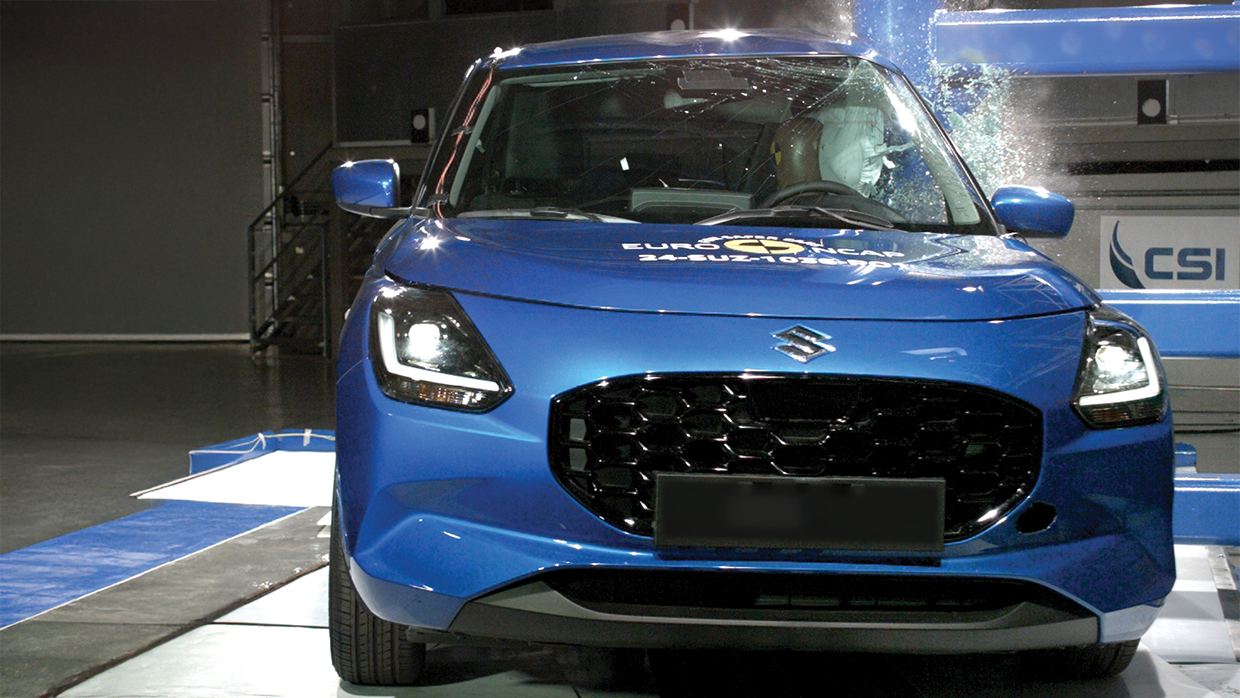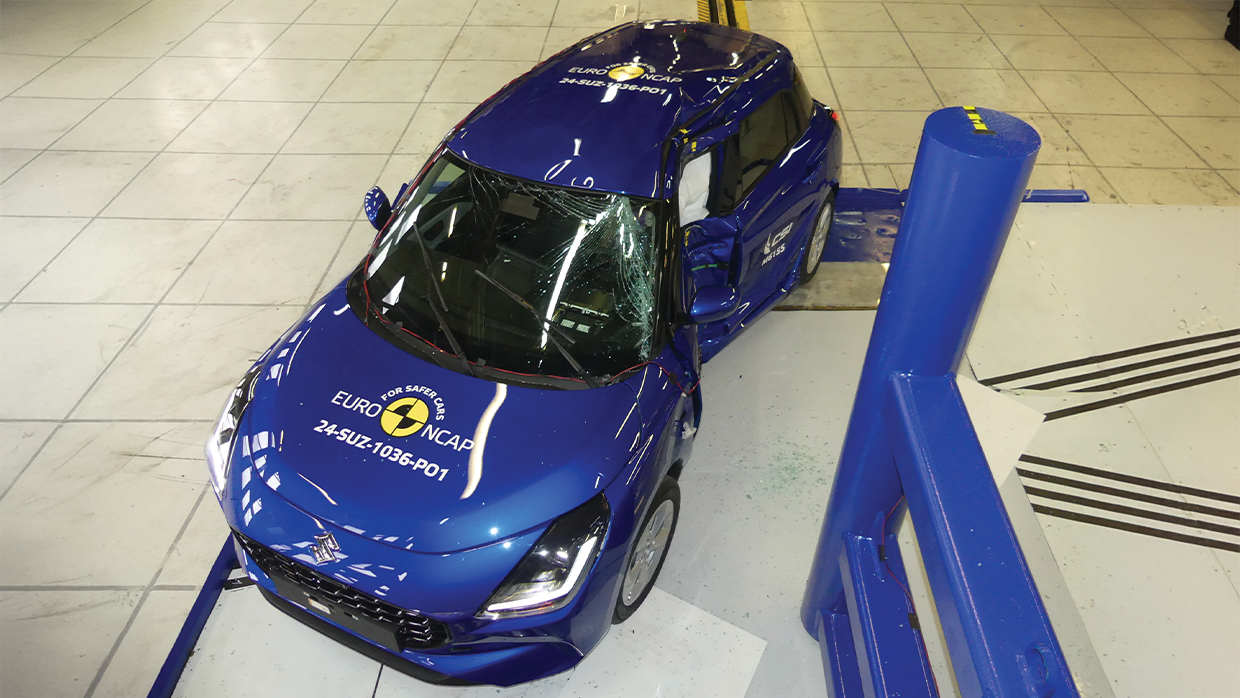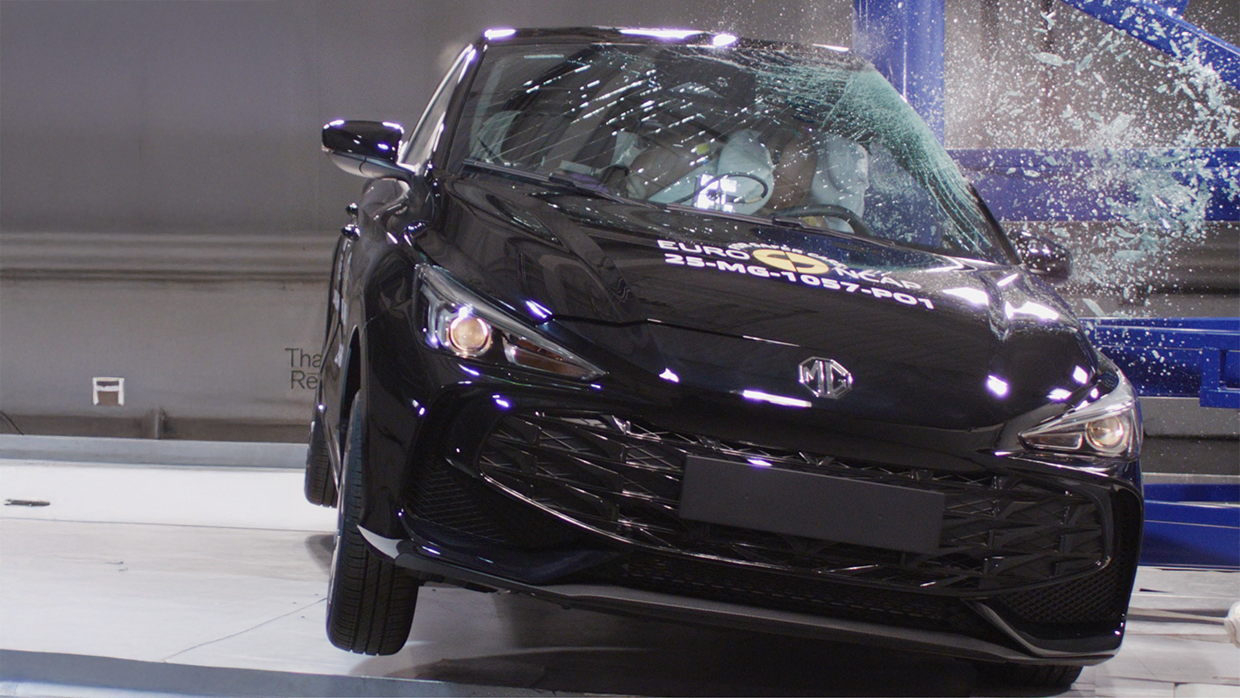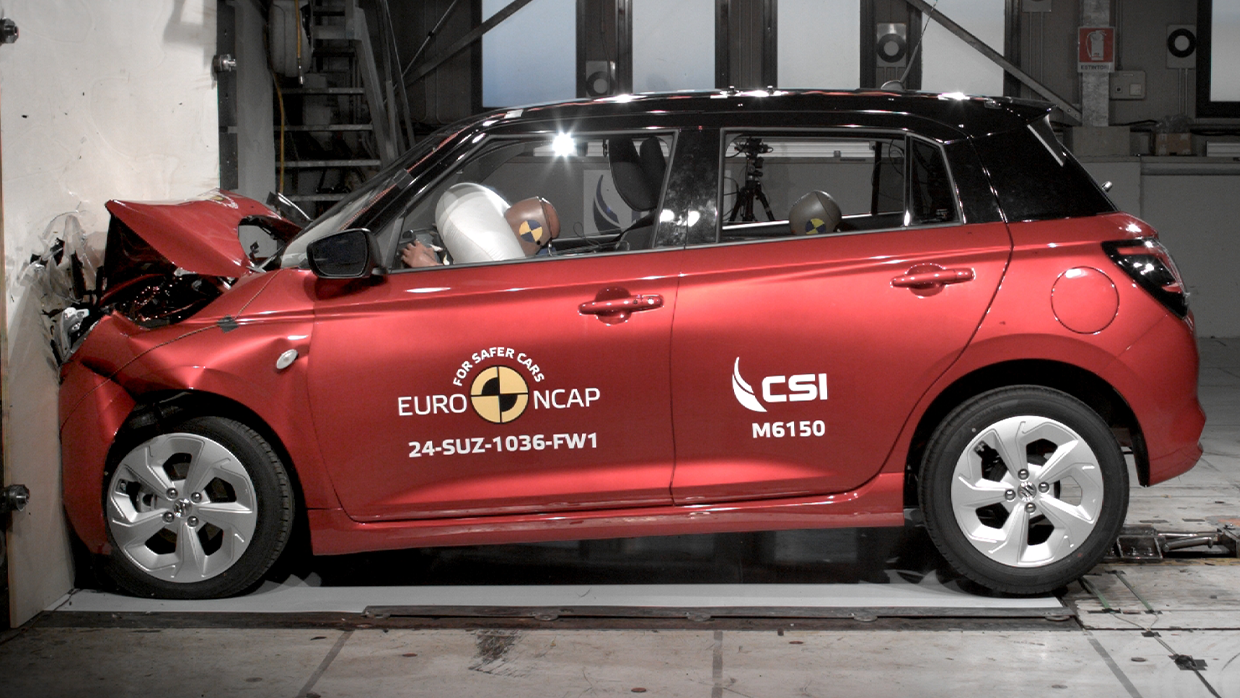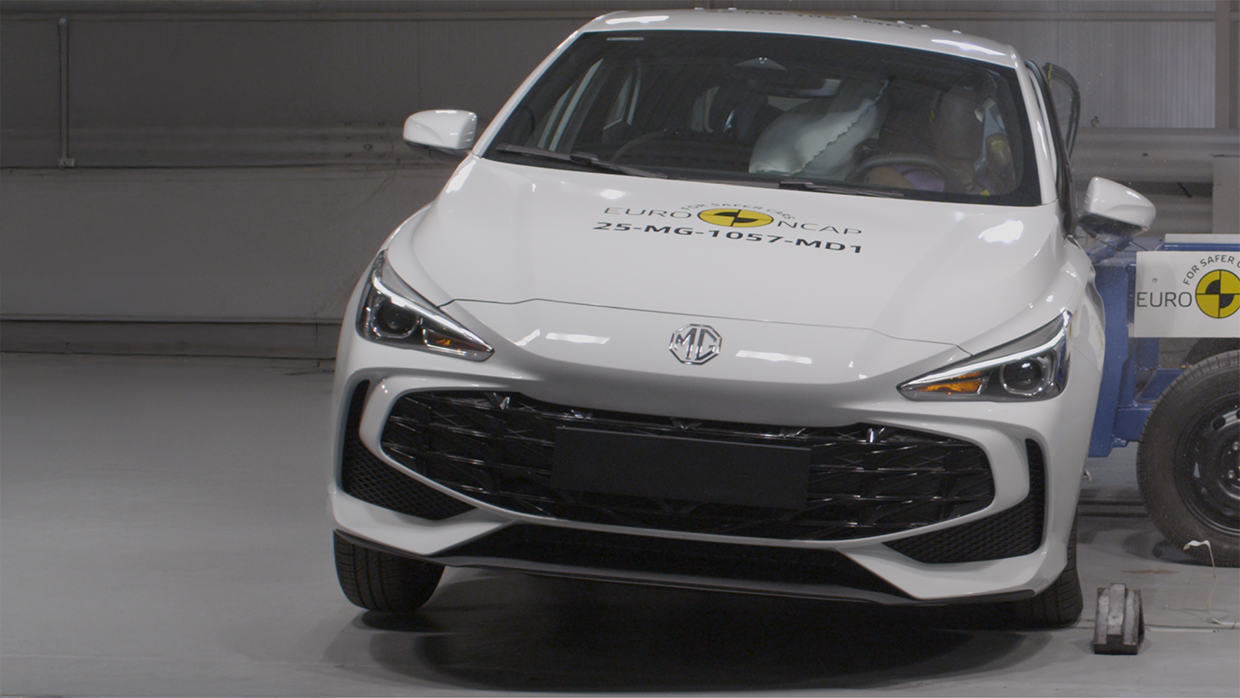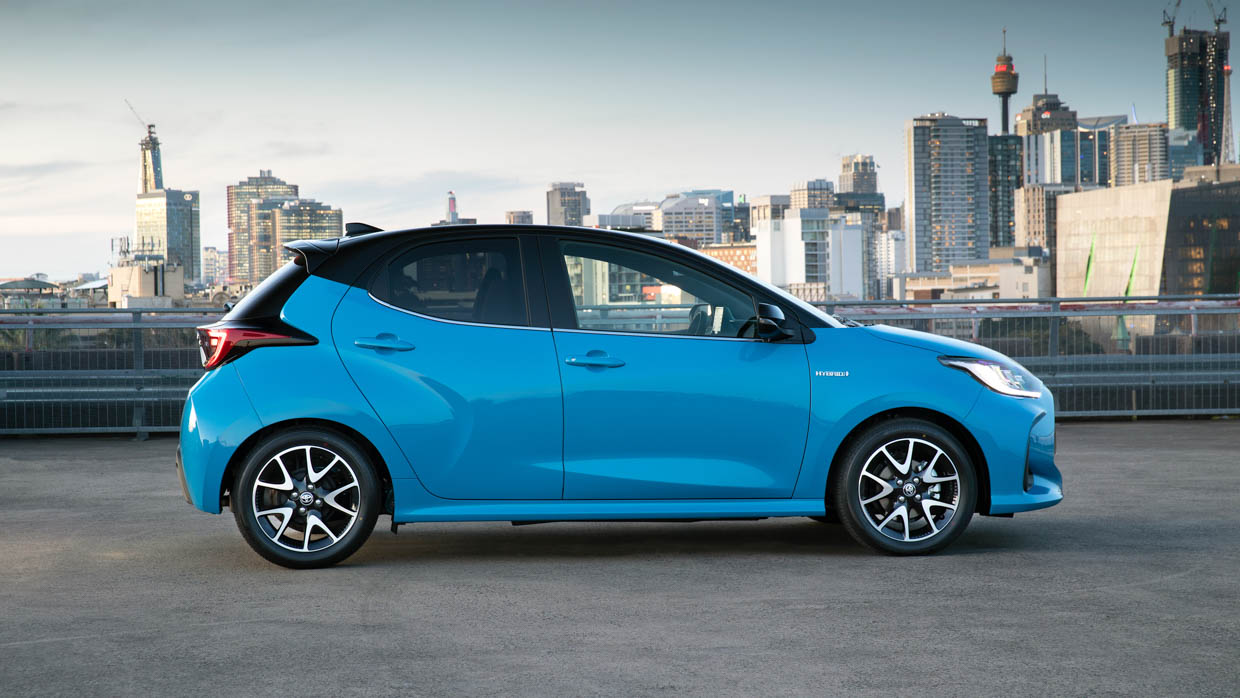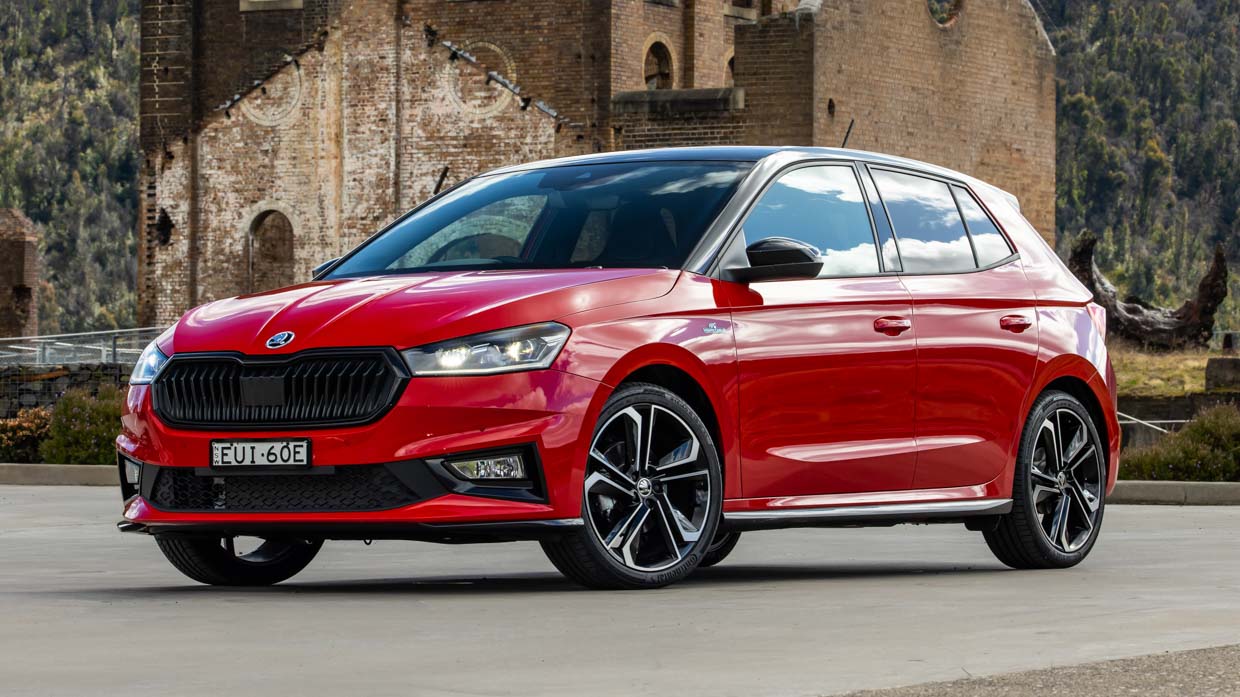-
Car Reviews
- All reviews
- Midsize SUVs
- Small cars
- Utes
- Small SUVs
- Large SUVs
- Large cars
- Sports SUVs
- Sports cars
- Vans
Latest reviews
- Car News
-
Car Comparisons
Latest comparisons
- Chasing Deals
Two of Australia’s cheapest compact cars gain much-needed safety improvements
The Australasian New Car Assessment Program, better known as ANCAP, has today revealed its new ratings for the popular Suzuki Swift and MG3 compact hatchbacks.
Both models are under the microscope, as previous testing proved less than favourable for the pair. In 2024, testing of the MG3 resulted in a three-star rating, while the Suzuki Swift received just one star.
Controversy soon followed the Swift’s rating, as European testing of the same model resulted in three stars.
ANCAP administered independent testing of the Suzuki Swift last year after being informed of “physical differences between locally-supplied Swift models and those supplied in Europe”. The independent results were damning.
Shortly after issuing a one-star result for the 2024 Swift, ANCAP CEO Carla Hoorweg stated “The design of some of the structural elements and restraints in locally-sold Swift vehicles appear to lack robustness [when compared to the European model]”.
Now, a second round of testing reveals that the Australian model Suzuki Swift is built to the same standard as its European counterpart.
The MG3 small car isn’t free from controversy either. Revised in May 2025 to include a centre airbag, driver monitoring, and improved collision avoidance to all models, the MG3 has received a four-star safety rating alongside a note of caution to buyers.
During a simulated 50km/hr head-on crash test, the right-side driver seat adjuster failed, causing the seat to twist on impact. Information from the driver dummy revealed excessive force to the right leg, as well as the dummy ‘bottoming out’ the steering wheel airbag.
Resultantly, the safety rating of the driver’s leg was rated as ‘poor’, and safety of the head rated as ‘adequate’.
Overall, the new ANCAP test result for the MG3 should be viewed as positive. Current testing has revealed:
Results for the Suzuki Swift, while not yet five stars, are still an improvement over the outgoing one star rating. Current testing has revealed:
The new ANCAP results apply to all MG3 models built from 30 April 2025 (VIN LSJWP4U92SZ204415 onwards), and all Suzuki Swift models built from August 2025 and on sale from September 2025 (VIN …250001 onwards).
Both scores will be valid for six years, unless re-tested.
The compact car segment (sometimes referred to as ‘light’ or ‘city’) is quite niche in Australia, comprising only 2.2 percent of the total car market.
Putting aside the aforementioned MG3 and Suzuki Swift, Aussies opt for longstanding namesakes when it comes to light cars, with the Toyota Yaris, Mazda 2, Hyundai i20 N and Skoda Fabia ruling the roost.
So how do these cars compare for safety? Skoda’s Fabia comfortably holds a five star rating, which will expire in 2028. It achieved an adult occupant score of 85 percent, child occupant score of 81 percent, and pedestrian safety score of 70 percent when it was tested in June 2022.
Meanwhile, the Toyota Yaris is currently rated five stars, but will become unrated in less than a year (August 2026). When tested in 2020, the Toyota Yaris scored an adult occupant score of 86 percent, child occupant score of 87 percent, and pedestrian safety score of 78 percent.
Most surprising is the Mazda 2, Australia’s second most popular light car. It has no official ANCAP rating as of January 2023, but was previously rated at five stars. The Mazda 2 held its five-star rating from 2015-2022, but has not been tested since its June 2023 facelift.
The Hyundai i20N is also unrated, and in fact, the current generation has never been tested in Australia. In a 2021 European test, the i20 achieved a Euro NCAP score of four-stars.
Latest news
About Chasing cars
Chasing Cars reviews are 100% independent.
Because we are powered by Budget Direct Insurance, we don’t receive advertising or sales revenue from car manufacturers.
We’re truly independent – giving you Australia’s best car reviews.
